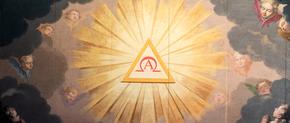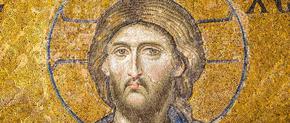The views expressed in our content reflect individual perspectives and do not represent the authoritative views of the Baha'i Faith.
Some years ago in the late 1960s, my best friend became a Baha’i – she declared her acceptance of Baha’u’llah as the most recent prophet in the ever-evolving religion of God.
Raised a Southern Baptist, her parents were alarmed that she had “rejected Christ.” As devoted Christians, they were mindful of Christ warning his disciples in the Book of Mathew: “Take heed that no man deceive you. (For) many false prophets shall rise, and shall deceive many.” They worried over the fate of their daughter’s soul.
RELATED: Literal or Not? Understanding Prophecies About Christ’s Return
Christ’s Second Coming
As the disciples gathered on the Mount of Olives the evening before Christ’s crucifixion, they asked their Lord for the signs of his return. They listened as Christ unveiled a panorama of earthly and heavenly signs that would presage his second coming. Of earthly signs, Christ warned of wars, rumors of wars, famines, pestilence, and iniquity. Of heavenly signs, he portended a darkening of the sun and the moon, and the falling of stars upon the Earth.
While concluding his apocalyptic predictions on the Mount of Olives, Christ also said to them: “This generation shall not pass, till all these things be fulfilled” – which led the disciples to believe that Christ would return within their lifetimes. But he did not return as they expected. Instead, as the earthly signs continued throughout coming centuries, Christians down through the ages were persuaded, like the disciples, that their particular generation could witness Christ’s return.
With the dawn of the nuclear age in 1945 and an explosion in communication technologies, we’ve now witnessed an epic escalation in apocalyptic rhetoric. Whether fomented by a host of authors, fundamentalist clergy, or news personalities, expectations of Christ’s second coming have stirred the consciences of many millions of Christians. Convinced that his return is imminent, they only disagree in the manner of his coming.
Baha’u’llah and Christ
My friend’s parents were already spooked by wars and other tribulations in the 1950s and 1960s. They anxiously anticipated those heavenly signs that would herald Christ’s appearance to all humanity in the clouds of heaven. They had been raised up on this ominous promise from the Book of Mathew:
Immediately after the tribulation of those days shall the sun be darkened, and the moon shall not give her light, and the stars shall fall from heaven … all the tribes of the earth … shall see the Son of man coming in the clouds of heaven with power and great glory.
Unlike other denominations that anticipate a millennium of peace or a rapture, they believed that upon his coming the dead and the living in Christ would be raised heavenward to join their Lord. The deniers would be left behind to face their special torment in hell – and then the world would actually come to an end.
Another concern of her parents: the Antichrist. Down through the centuries, he has been considered an unchristian personality who occupied a position of power such as Nero or a Pope, but oppressed those in his domain. In modern times, some conspiracy theorists have viewed political leaders as antichrists. In my friend’s Christian upbringing, and in the Gospel of John, the Antichrist was considered a false prophet:
Beloved … try the spirits whether they are of God … Every spirit that confesseth that Jesus Christ is come in the flesh is of God: And every spirit that confesseth not that Jesus Christ is come in the flesh is not of God: and this is that spirit of antichrist, whereof ye have heard that it should come …”
Little wonder my friend’s parents could not be dissuaded that their daughter had rejected Jesus. Given the extraordinary signs they expected to accompany Christ’s second coming, how could anyone claiming the mantle of prophethood while walking the Earth be legitimate?
Unless the Heavenly Signs Are Symbolic
Unless the heavenly signs are symbolic, Baha’u’llah, who walked the Earth in the 19th century, would have been considered false. Who, then, is the spirit of truth that Christ promised:
I have yet many things to say unto you, but ye cannot bear them now. Howbeit when he, the Spirit of truth, is come, he will guide you into all truth: for he shall not speak of himself: but whatsoever he shall hear, that shall he speak: and he will shew you things to come.
Historically many Christians have been millennialists. Convinced that Christ will preside over a 1,000-year era of peace on Earth, they have been divided as to whether his coming will follow or precede his promised earthly kingdom. Post-millennialists anticipate Christ’s coming at the end of the millennium. They believe that Christ’s teaching will eventually Christianize all humanity. At the end of the age, he will then return for a final judgment.
Pre-millennialists believe that Christ will return before the Millennium. They tend to be apocalyptic, believing that the new age will be ushered in cataclysmically. Being raised in a Christian family, my friend had been long convinced that cataclysmic events afflicting humanity were surely apocalyptic. Like her Christian cousins, she understood their anticipating a Millennium of peace to follow a tribulation period. To her and surely to them, the world is already in travail. But for what purpose – unless to bring about peace among the nations and fulfil this prophecy of Isaiah?
RELATED: Why I Believe Christ Has Returned
The Baha’i teachings, including this passage from Shoghi Effendi’s book The Promised Day Is Come, answered my friend’s questions:
What we witness at the present time, during this gravest crisis in the history of civilization … is the adolescent stage in the slow and painful evolution of humanity, preparatory to the attainment of the stage of manhood, the stage of maturity, the promise of which is … enshrined in the prophecies of Baha’u’llah. … The convulsions of this transitional and most turbulent period in the annals of humanity are the essential prerequisites, and herald the inevitable approach, of that Age of Ages, ‘the time of the end,’ in which the folly and tumult of strife that has, since the dawn of history, blackened the annals of mankind, will have been finally transmuted into the wisdom and the tranquility of an undisturbed, a universal, and lasting peace … and the complete unification of the diverse elements that constitute human society.
Isaiah’s Prophecy Fulfilled
My friend became a Baha’i because she understood that the advent of Baha’u’llah’s new Faith fulfilled this prophecy of Isaiah:
And He (the Lord) shall judge among the nations and shall rebuke many people: and they shall beat their swords into plowshares and their spears into pruning hooks: nation shall not lift up sword against nation, neither shall they learn war any more.
After investigating and discovering the spiritual teachings that Baha’u’llah brought, she accepted him as the spirit of truth and a legitimate prophet. Her love for Christ was quickened when she read Baha’u’llah’s assertion that Christ has come in the flesh:
Know thou that when the Son of Man yielded up His breath to God, the whole creation wept with a great weeping. By sacrificing Himself, however, a fresh capacity was infused into all created things. … Blessed is the man who, with a face beaming with light, hath turned towards Him.
RELATED: What My “Yes” to Baha’u’llah Means for My “Yes” to Jesus
So her acceptance of Baha’u’llah was not a rejection of Christ – but rather a sign of her faith in him and his prophetic promises. With Baha’u’llah’s coming, she joined the global Baha’i community, which believes as Baha’u’llah wrote that the ever-evolving religion of God has been renewed.
And now concerning thy question regarding the nature of religion. Know thou that they who are truly wise have likened the world unto the human temple. As the body of man needeth a garment to clothe it, so the body of mankind must needs be adorned with the mantle of justice and wisdom. Its robe is the Revelation vouchsafed unto it by God. Whenever this robe hath fulfilled its purpose, the Almighty will assuredly renew it. For every age requireth a fresh measure of the light of God. Every Divine Revelation hath been sent down in a manner that befitted the circumstances of the age in which it hath appeared.

















Comments
Sign in or create an account
Continue with Facebookor